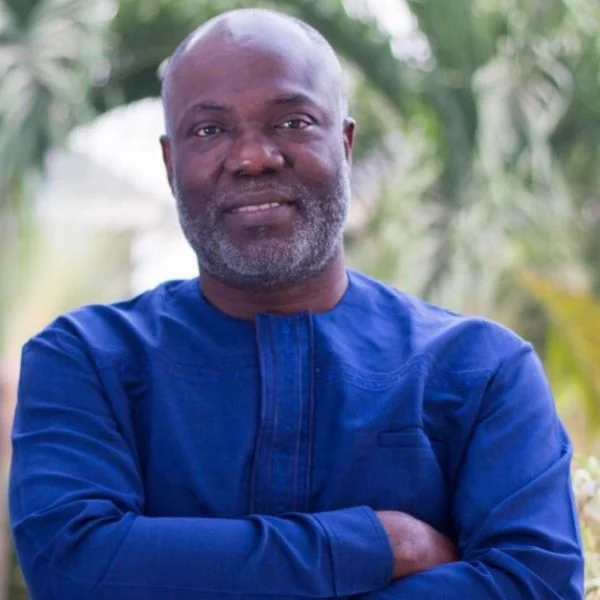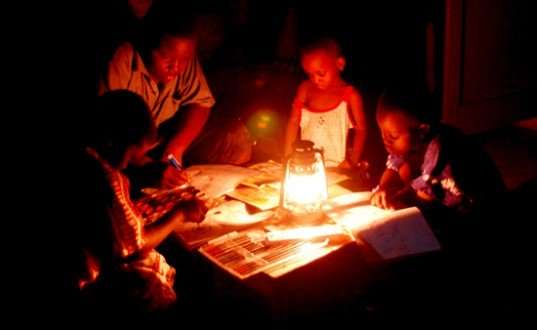As Ghana faces renewed pressure over power outages and rising electricity costs, Energy Minister John Jinapor has come under sharp criticism from the Minority in Parliament for what they describe as alarming and unproductive public remarks.
Leading the charge is Hon. George Kwame Aboagye, Ranking Member of Parliament’s Energy Committee, who accused the Energy Minister of being more interested in grabbing headlines than solving the nation’s growing energy crisis.
“His statements have not only instilled fear among Ghanaians but have also sent troubling signals to the business community. It is imperative that the Minister shift his focus from public pronouncements to tangible actions that will resolve the ongoing issues plaguing our power sector. It looks like our colleague, the Minister of Energy, seems more interested in making headlines than keeping the lights on.”
Hon. George Kwame Aboagye
The opposition lawmaker also cited a pattern of what he called “media theatrics,” suggesting that the Minister’s statements risk undermining investor confidence while failing to address the root causes of Ghana’s unstable electricity supply.
Central to the Minority’s concern was Jinapor’s recent claim that Ghana had only 2.6 days of fuel reserves remaining—a comment that sparked concern across industry and civil society.
Hon. Aboagye dismissed the claim as “baseless” and economically reckless, arguing that such pronouncements could trigger panic and unsettle markets.

“Power is the lifeblood of industry, and such statements send panic through businesses still recovering from the aftershocks of COVID-19 and global economic turbulence. This is not the first time the Minister has made statements that paint a bleak picture of our energy situation.”
Hon. George Kwame Aboagye
He pointed to an earlier episode during the swearing-in ceremony of the President, when the Energy Minister declared that Ghana had just five hours of fuel left.
That alarming assertion was later walked back, after Jinapor clarified he was referring specifically to heavy fuel oil (HFO), not the total fuel supply.
Energy Minister Urged to Shift Focus
The Minority believes these types of communications are not only careless but also harmful. According to Aboagye, the Energy Minister’s comments omit crucial context and fail to reflect the full picture of Ghana’s power generation capacity.
He argued that while HFO reserves may have been low, other power plants had sufficient fuel stocks and remained operational—facts he said were conveniently ignored.

Such selective disclosures, he added, fuel public anxiety and create an impression of imminent crisis, even when the broader system has buffers.
Meanwhile, the energy sector continues to struggle with deep structural challenges—intermittent power supply (locally referred to as “dumsor”), rising operational costs, and a widening gap between demand and infrastructure investment.
The Minority insisted that the Energy Minister should be addressing these fundamental issues instead of amplifying short-term threats in the media.
“We need leadership that reassures, not one that stokes panic. What businesses and households want are clear plans and stable supply—not press conferences that rattle confidence.”
Hon. George Kwame Aboagye
Industry players, too, have grown uneasy. Business owners and investors are becoming increasingly vocal about the lack of consistency in energy policy and the ongoing disruptions caused by unreliable electricity.
Power generation companies have warned about delayed payments and fuel procurement bottlenecks, while consumers are grappling with frequent outages and high tariffs.
The economic impact is particularly severe for small- and medium-sized enterprises, many of which rely on stable power for manufacturing, refrigeration, and IT operations.

In response, energy experts have urged the government to prioritize long-term solutions such as diversifying energy sources, strengthening transmission infrastructure, and enforcing payment discipline among off-takers.
However, critics argue that none of this is possible if public trust continues to erode due to what they describe as sensationalist commentary from top officials.
For now, the confrontation between the Energy Minister and the parliamentary Minority reflects growing frustration with the pace of energy sector reform and the ongoing hardships caused by power instability.
As the nation moves into the second half of the year, with rising energy demands forecasted, stakeholders are calling for a renewed focus on technical leadership, policy discipline, and above all, credible communication from the top.
The public, businesses, and development partners alike will be watching to see if the Ministry of Energy can deliver more light than heat.
READ ALSO: Mercy Johnson Explains Weight Loss






















